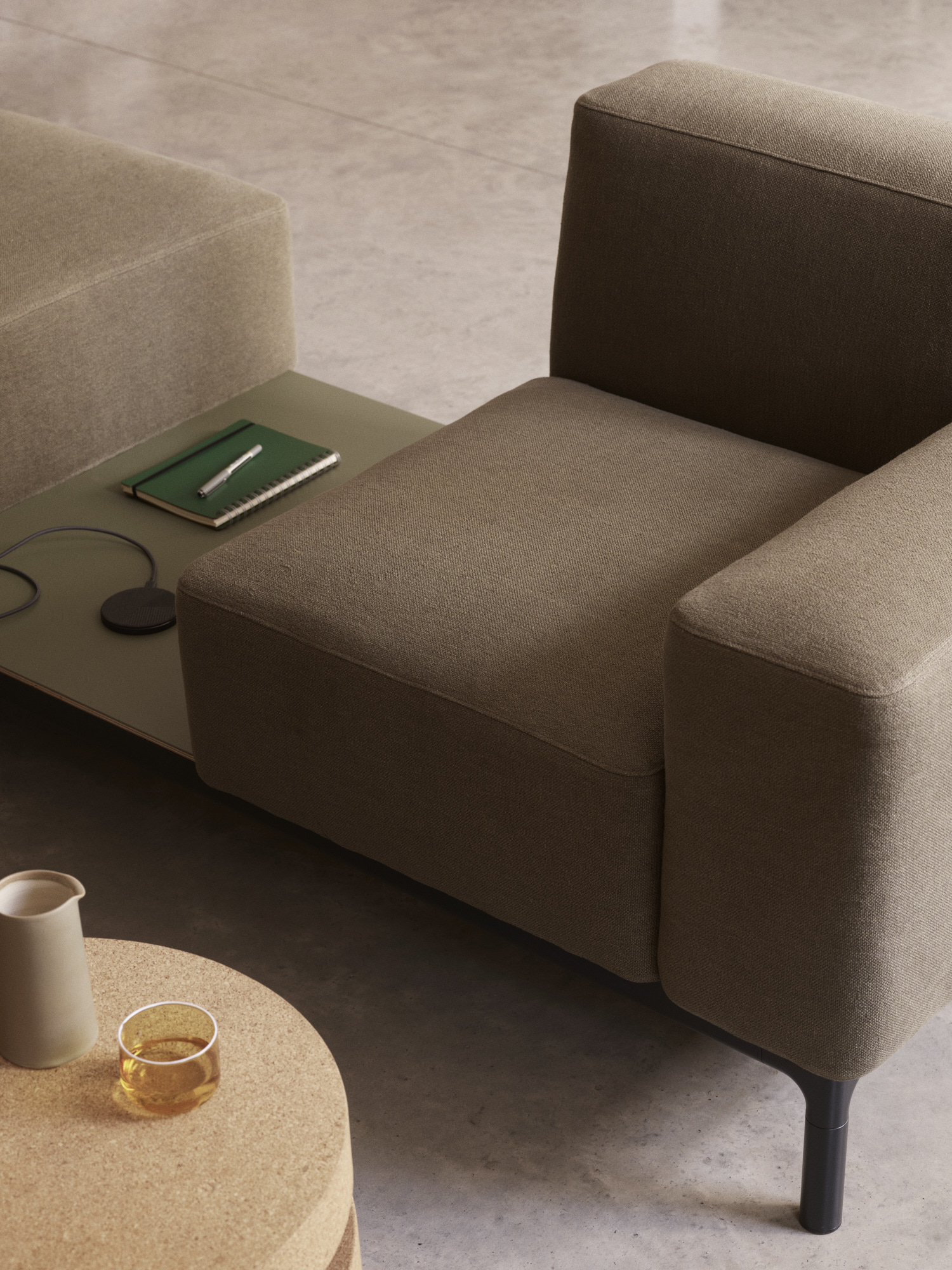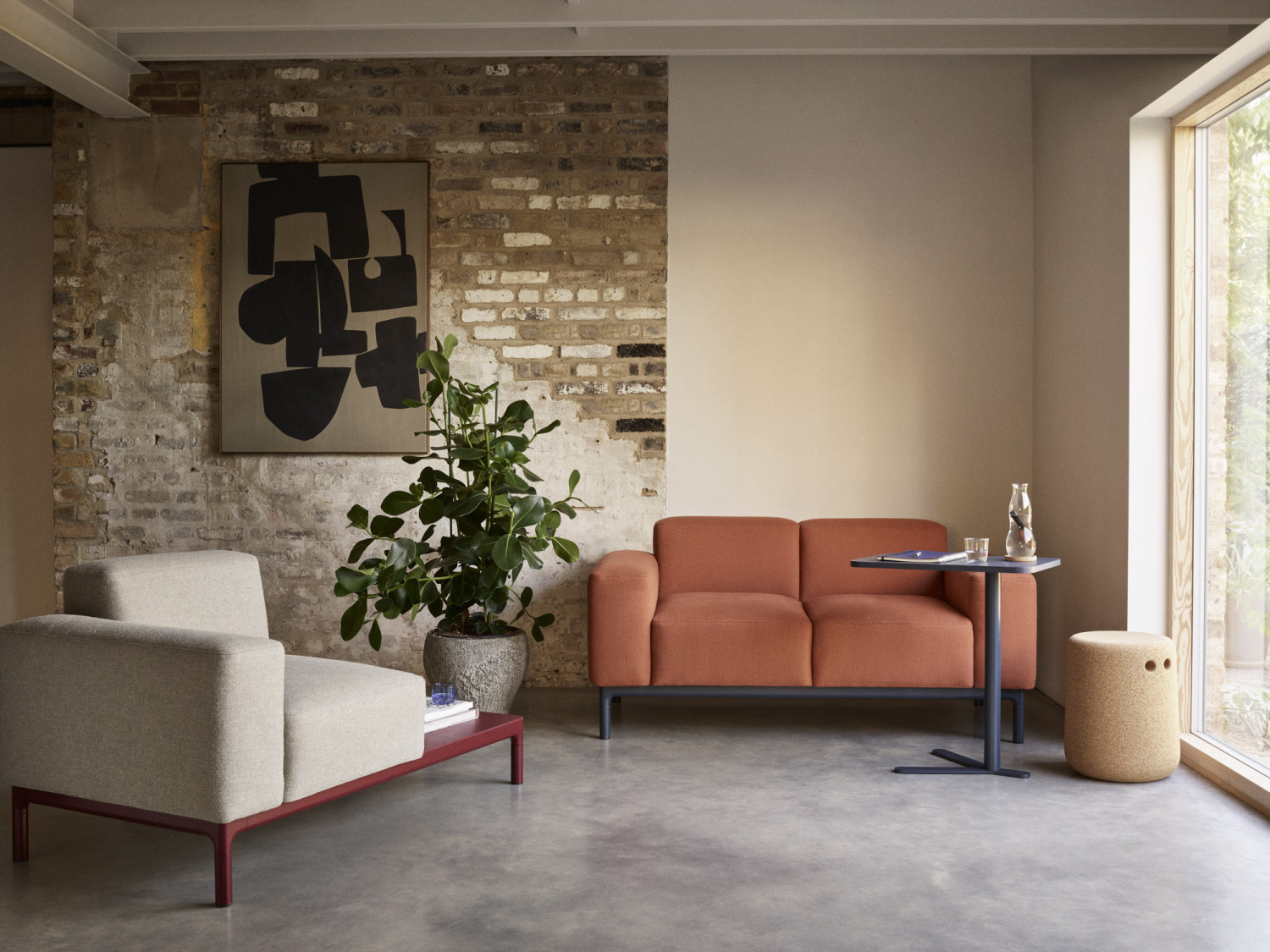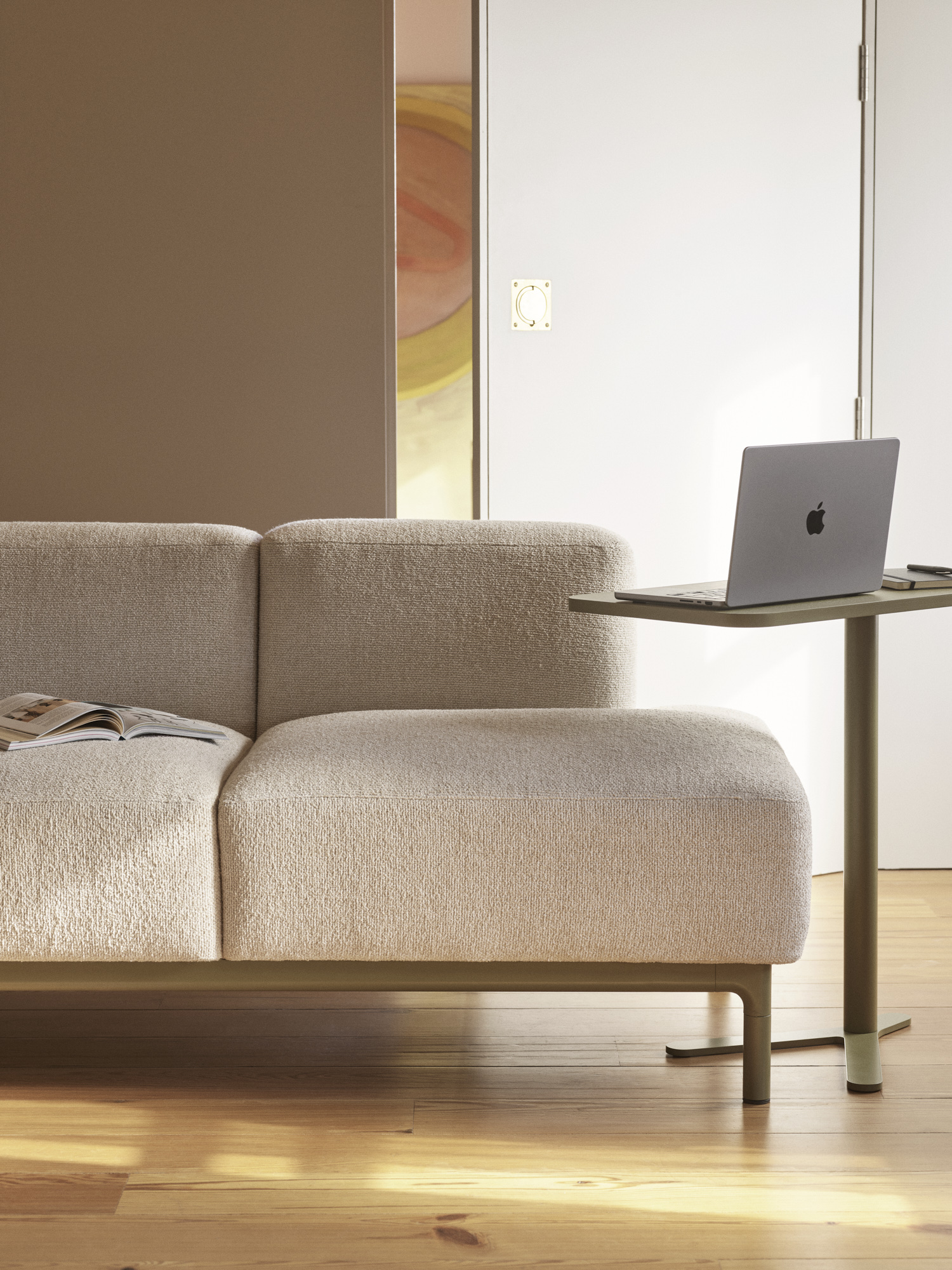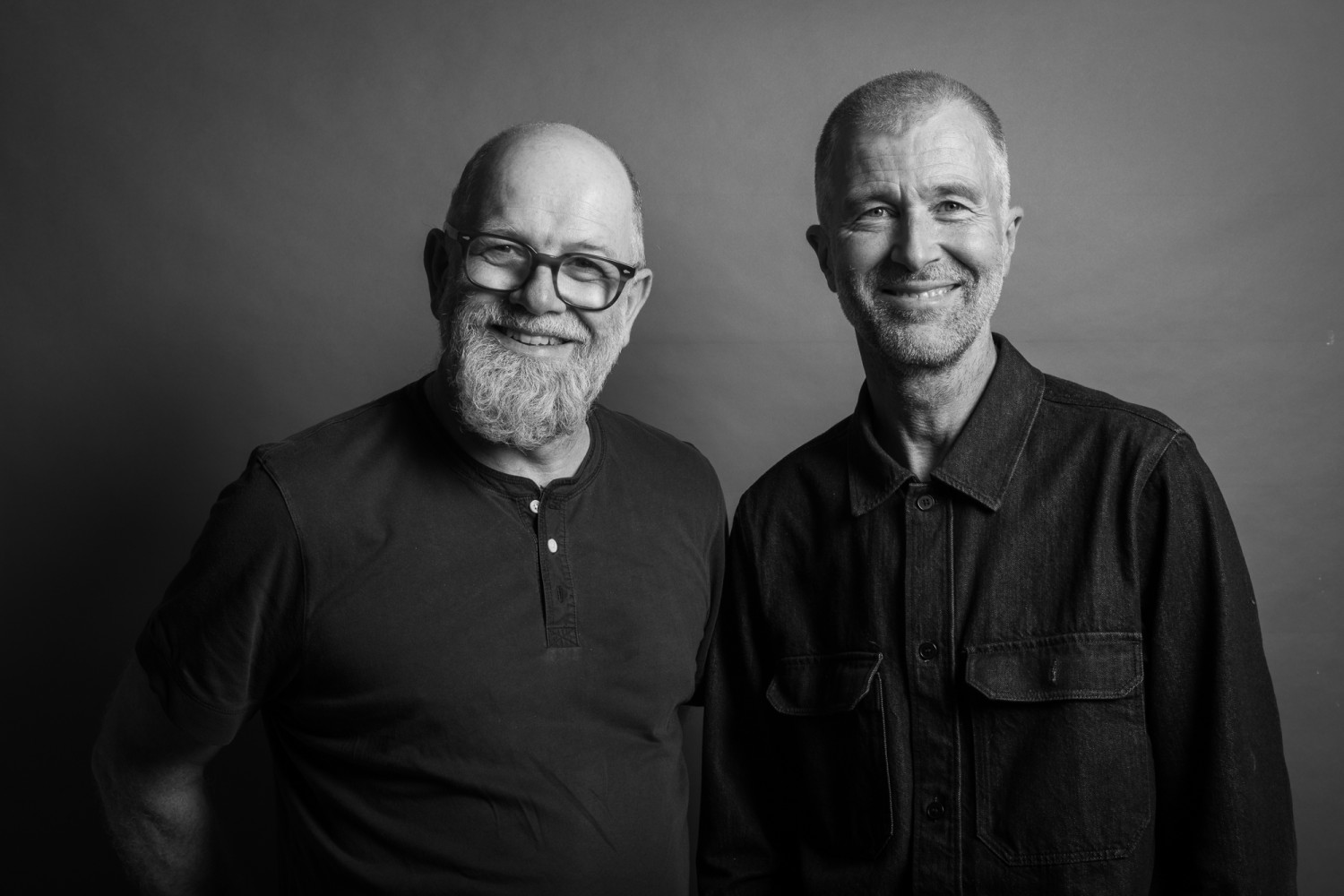“The interaction between people, product and place – and how a product or system can affect our behaviour – lies at the heart of our practice.” It is this mantra that sits as a core principle of Pearson Lloyd’s approach and one that was applied to the development of Pearson Lloyd Edge, a comprehensive and flexible workplace furniture system that we launched in 2015.
It all started with a knuckle,” says Luke Pearson with a chuckle. “Or more precisely, a corner knuckle.” This knuckle is in fact the cast aluminium piece that forms the corner joints of the system – the meeting point for the extruded horizontal supports of each product and the sturdy legs. The design is underpinned by these carefully engineered structural components but is nevertheless imbued with a visual simplicity. The strength of the knuckle gives the system the potential for multiple products, always carried off with a coherent visual identity.



